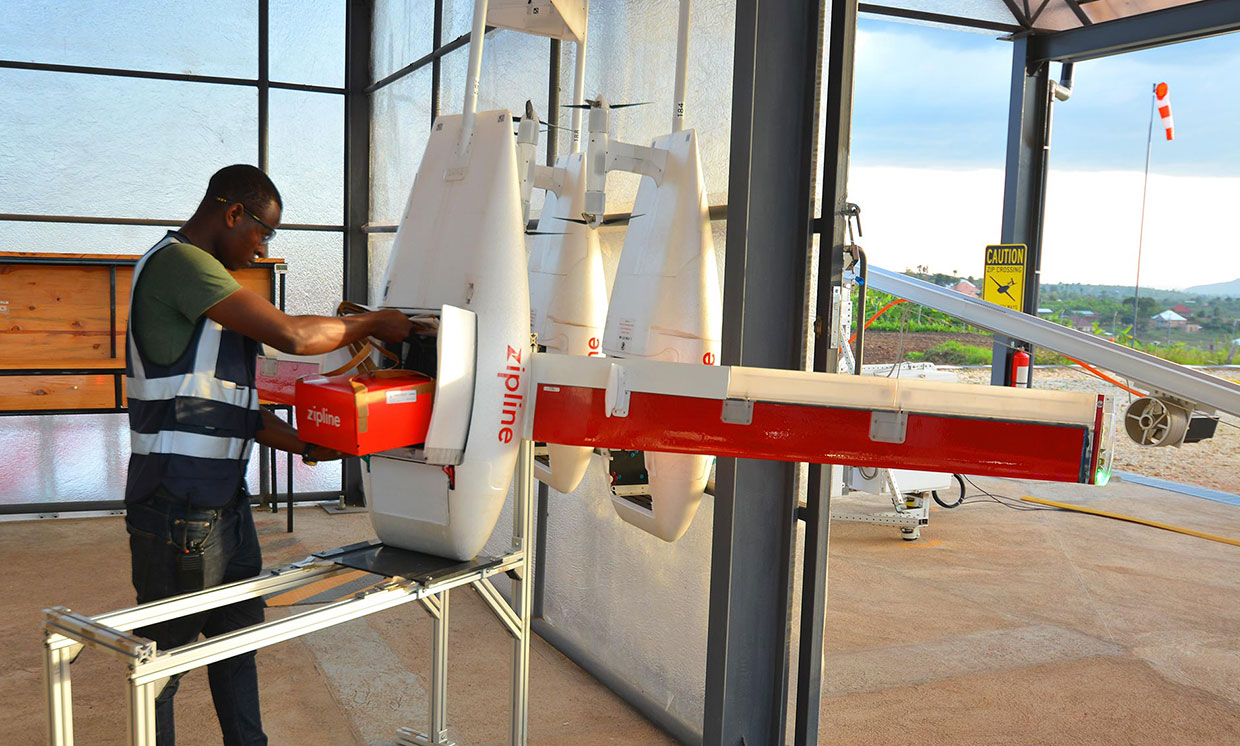
According to spectrum.ieee.org, Zipline is working with the US Federal Aviation Administration (FAA) to attempt expedite safety and regulatory approvals for an emergency humanitarian mission to launch an extensive drone medical supply delivery network in America that could help people maintain social distancing or quarantine, when necessary, by delivering urgent medication close to the public’s doorstep.
Zipline is a drone delivery pioneer in Africa successfully distributing medicines and blood samples around Rwanda and Ghana. Today, the company is at the forefront of combatting Covid-19 in Africa, acting as a centralised distribution network for supplies in these two countries. Items like personal protective equipment (PPE) are delivered as needed by drone, ensuring that demand is met across the healthcare network.
But this has been a problem in the United States (US), where gaining needed existing supplies takes a lot of organisation and coordination, which the US government is finding to be a tough challenge.
Zipline says their drones are able to reduce human involvement in the supply chain (a vector for infection), while reducing hospital overcrowding by making it more practical for non-urgent patients to receive care in local clinics closer to home. Covid-19 is also having indirect effects on healthcare, with social distancing and community lockdowns straining blood supplies, yet with its centralized distribution model, Zipline has helped Rwanda to essentially eliminate wasted (expired) blood products. “We probably waste more blood in the US than is used in all of Rwanda,” Zipline CEO, Keller Rinaudo explains.
For the past year, Zipline, working closely with the FAA, has been planning a local commercial trial of a medical drone delivery service scheduled to begin in North Carolina this Autumn. While the coronavirus is more urgent, the work that’s already been done towards this test puts Zipline in a good position to move quickly.
Rinaudo says, “All of the work that we did with the IPP (UAS Integration pilot program) is even more important, given this crisis. It means that we’ve already been working with the FAA in detail, and that’s made it possible for us to have a foundation to build on to help with the Coronavirus response.”
Assuming that Zipline and the FAA can find a regulatory path forward, the company could quickly set up distribution centres that can support hospital networks for both interfacility and contactless delivery to neighbourhood points and, perhaps, even homes. “It’s exactly the use case and value proposition that I was describing for Africa,” Rinaudo continues.
Leveraging rapid deployment experience that it has from work with the US Dept of Defence, Zipline would launch one distribution centre within a few months after the go-ahead from the FAA. This single distribution centre could cover an area representing up to 10 million people. “We definitely want to move quickly here,” Rinaudo tells us. “Within 18 months, Zipline could theoretically cover the entire US”, although he admits. “That would be an insanely fast roll-out.”
The question: How fast can the FAA take action to make innovative projects like this happen given Zipline are ready to go and yet, what of the medical system in general? Does it have the bandwidth to adopt a system like Zipline’s in the middle of a pandemic that’s already stretching people and resources to the limit?
“In the US there’s a sense this technology is impossible, whereas it’s already operating at multi-national scale, serving thousands of hospitals and health facilities.” Rinaudo says. Adding, “People in the U.S. have really not caught on that this is something which is reliable and can dramatically improve our response to crises like this.”

